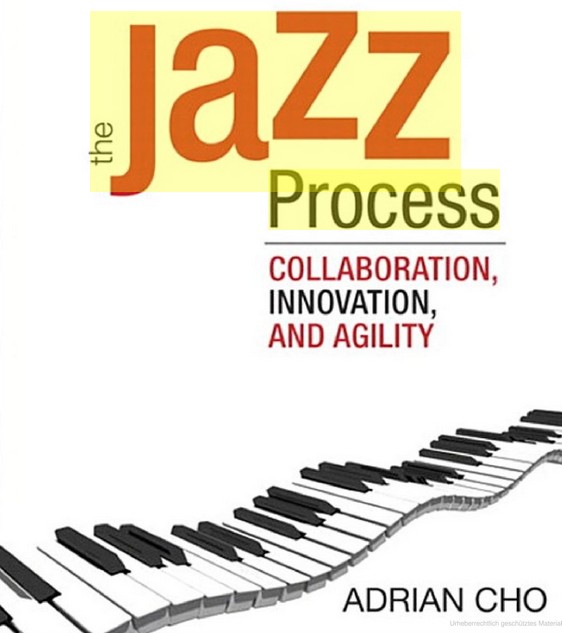Book Review: The Jazz Process
I must admit that I was initially a little bit skeptical on a book about agility coming out from IBM. I was wrong. Although you will find a little bit of “bigblueness” in the content, I really enjoy reading “The Jazz Process” that proposes a deep and interesting perspective on the team dimension of software development with multiple references to the jazz and sports domains.
There are 14 principles for the Jazz process, “use just enough rules” or “act transparently” for instance, that are explained in the book. Each is studied in different context (management, music, sport) and forms (concepts, use cases). The flow of the book is very good, making it enjoyable to read and a summary at the end of each chapter points out the main ideas conveyed in the text.
I will recommend the book “The Jazz Process” to every people involved in software development, especially at the management level. It is full of interesting thoughts on the topic that you will enjoy even more if you are in addition a fan of jazz and sport.
Reference: “The Jazz Process – Collaboration, Innovation and Agility”, Adrian Cho, Addison-Wesley

Quotes
Great musicians, like successful business people and top athletes, constantly balance individual contributions and elegant teamwork. The gems of individual performance are almost without the team framework.
The tendency to resort to groupthink can be exacerbated by a team’s tendency to self-select likeminded people and get rid itself of people who don’t think like the rest of the team. It’s important to find a workable balance between strong individual talents and team-centric collaboration, and to ensure that people always feel empowered to speak out.
It’s important for people to believe that openness given can lead to openness received. This openness must extend to admitting mistakes when necessary. […] When people admit to mistakes, others in a group are more apt to do so as well. It’s always better to know about mistakes earlier than later. Being open about them has the added benefit of giving critics less ammunition.
Last Comments